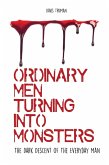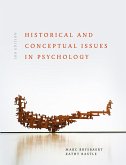This textbook connects the big ideas and key thinkers of psychology and philosophy in a clear and cohesive theoretical narrative. Students are led to understand the relations between different schools of thought, and to connect the various thinkers, theories and facts in psychology's history. Focusing on the major ideas that have reoccurred throughout history, such as the mind-body problem and the role of the mind in our experience, Martin Farrell shows how specific thinkers have explored the same ideas, but in different ways, leading to distinct schools of thought. The coherent narrative enables students to see the bigger picture, through which the historical and conceptual roots of psychology can be easily understood.
Dieser Download kann aus rechtlichen Gründen nur mit Rechnungsadresse in A, B, BG, CY, CZ, D, DK, EW, E, FIN, F, GR, HR, H, IRL, I, LT, L, LR, M, NL, PL, P, R, S, SLO, SK ausgeliefert werden.









